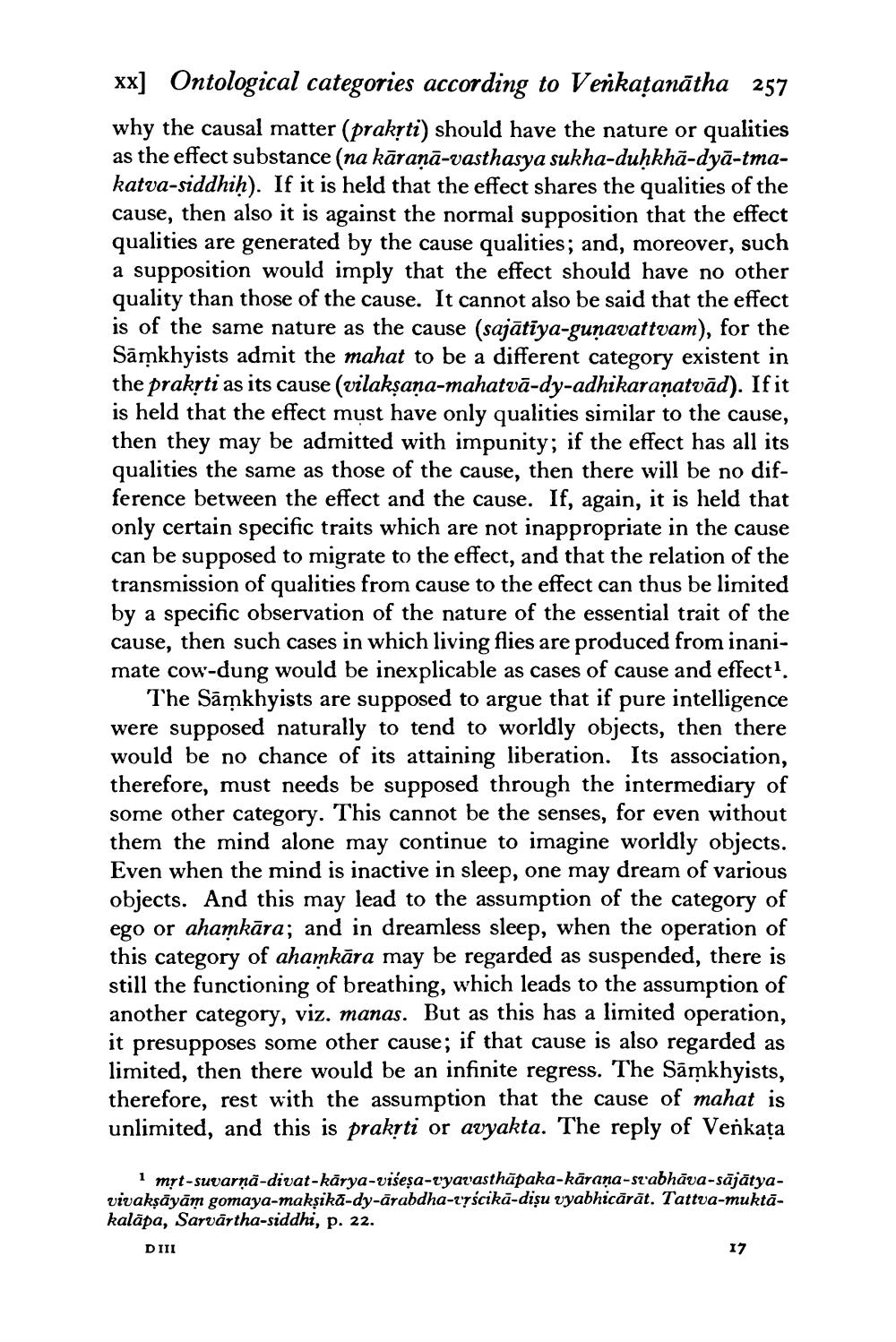________________
xx] Ontological categories according to Verkațanātha 257 why the causal matter (prakrti) should have the nature or qualities as the effect substance (na kāraņā-vasthasya sukha-duḥkhā-dyā-tmakatva-siddhiḥ). If it is held that the effect shares the qualities of the cause, then also it is against the normal supposition that the effect qualities are generated by the cause qualities; and, moreover, such a supposition would imply that the effect should have no other quality than those of the cause. It cannot also be said that the effect is of the same nature as the cause (sajātīya-gunavattvam), for the Sāmkhyists admit the mahat to be a different category existent in the prakrti as its cause (vilaksaņa-mahatvā-dy-adhikaraṇatvād). If it is held that the effect must have only qualities similar to the cause, then they may be admitted with impunity; if the effect has all its qualities the same as those of the cause, then there will be no difference between the effect and the cause. If, again, it is held that only certain specific traits which are not inappropriate in the cause can be supposed to migrate to the effect, and that the relation of the transmission of qualities from cause to the effect can thus be limited by a specific observation of the nature of the essential trait of the cause, then such cases in which living flies are produced from inanimate cow-dung would be inexplicable as cases of cause and effect".
The Sāmkhyists are supposed to argue that if pure intelligence were supposed naturally to tend to worldly objects, then there would be no chance of its attaining liberation. Its association, therefore, must needs be supposed through the intermediary of some other category. This cannot be the senses, for even without them the mind alone may continue to imagine worldly objects. Even when the mind is inactive in sleep, one may dream of various objects. And this may lead to the assumption of the category of ego or ahamkāra; and in dreamless sleep, when the operation of this category of ahamkāra may be regarded as suspended, there is still the functioning of breathing, which leads to the assumption of another category, viz. manas. But as this has a limited operation, it presupposes some other cause; if that cause is also regarded as limited, then there would be an infinite regress. The Sāmkhyists, therefore, rest with the assumption that the cause of mahat is unlimited, and this is prakrti or avyakta. The reply of Venkața
1 myt-suvarnā-divat-kārya-višeşa-zyavasthāpaka-kāraṇa-stabhāva-sājātyavivaksāyām gomaya-makşika-dy-ārabdha-zyścikā-dişu vyabhicārāt. Tattva-muktākalapa, Sarvartha-siddhi, p. 22.
DIII
17




